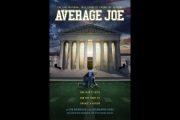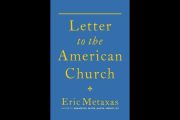
In his book, Seven Days That Divide The World, John Lennox (left) attempts to answer the age-old question: Can creationism and science co-exist? Focusing on the debate regarding the origins of life, Lennox analyzes both the evolutionary theory as well as creationism. Though there are a number of other theories about the origin of life, Lennox addresses the two seemingly polar opposite notions in order to assess whether scriptures can somehow corroborate the scientific theories.
A math professor and author from Oxford University, Dr. Lennox utilizes his book to advocate his position that science and faith can peacefully co-exist. According to The Blaze, the book “maintains that Christians can believe in science’s theoretical constructs, while embracing Biblical scriptures as truths.”
Lennox explains:
I think that sometimes people have been taught there are only two possibilities: Possibility one is that if you are being faithful to Scripture, you have to be a young earth creationist. Otherwise you’re an evolutionist or a theistic evolutionist, and you’re not faithful to Scripture. I don’t think that is the case…
…it’s not a quest of trying to keep up [with science], but it’s a quest of looking at what God has revealed of Himself in nature, and looking at what God has revealed of Himself in the Bible and trying to make sense of those two.
Lennox is no novice to having to reconcile science and faith, as he has debated well-known atheists Richard Dawkins and Christopher Hitchens.
In his book, Lennox encourages Christians to search for openings in the Bible where God’s account of the world’s creation may intersect with modern scientific discoveries.
The entire foundation of Lennox’s book rests on the notion that the book of Genesis suggests a more complex process to the creation of the world. According to Lennox, it is purposefully written as an oversimplification.
“If the Biblical explanations were at the level, say, of twenty-second century science, it would likely be unintelligible to everyone, including scientists today. This could scarcely have been God’s intention. He wished His meaning to be accessible to all,” said Lennox. He adds, “Jesus told parables about farming, building and fishing, not about factories, aviation and jungle exploration…His parables are accessible to anyone in any age. Similarly with Genesis.”
Lennox’s assertions are similar to those of Old Testament scholars John Walton and Frank Derek Kidner, both of whom adhere to the philosophy that the Biblical creation is intended as a framework that “might then indicate that there is more to the text than ordered sequence.”
While Lennox points to areas in the Bible where there may be room for scientific explanations, he does not explain today’s science through the Bible. Instead, he encourages readers of the Bible to do the work to find areas in the Bible where science and creationism intersect.
For example, Lennox indicates “that the beginning of Genesis 1:1 did not necessarily take place in day one as is frequently assumed. The initial creation took place before day 1.” The Christian Post explains Lennox’s position:
A delayed beginning separate from God’s day one separation of the light from the darkness gives readers pause to believe that the earth may have been created long before He began the literal seven, 24-hour days of creation. It also gives the reader pause to further explore the scientific makings of the earth and the universe.
Lennox, however, admits that he does not believe that there is room for evolution devoid of God’s hand in the story of creation.
“Genesis seems to go out of its way to imply a direct special creation [to make man], rather than suggesting that humans arose, either by natural processes or…out of preexisting hominids.”
Lennox, who also authored God’s Undertaker: Has Science Buried God, articulates concerns in his newest book that separating the Bible from science somehow gives the impression that science deals with reality while Biblical beliefs are nothing more than fantasy. In fact, Lennox asserts that the Bible is ahead of its time scientifically.
“When scientific evidence began to indicate that the universe had not existed eternally, some leading scientists put up fierce resistance because they thought it would give too much support to those who believed in creation.” Lennox contends that God started science because he provided a name for His creation.
According to the Lennox, the early church successfully reconciled the science of a moving earth with the scriptures. Therefore, it may be done again.
“We’ve coped with controversy in the past where people have been split and we have resolved it so that virtually nobody I ever met…believes that the earth is fixed,” he declares.




